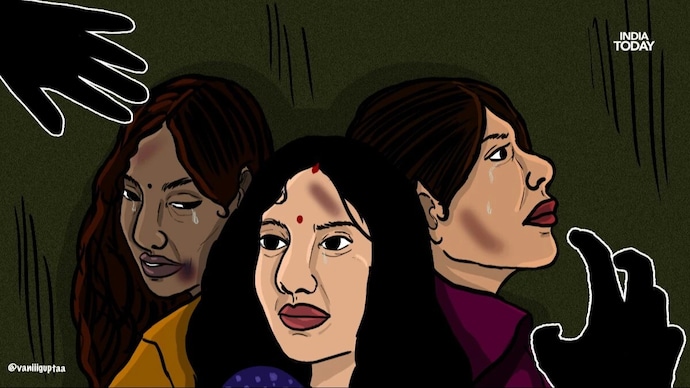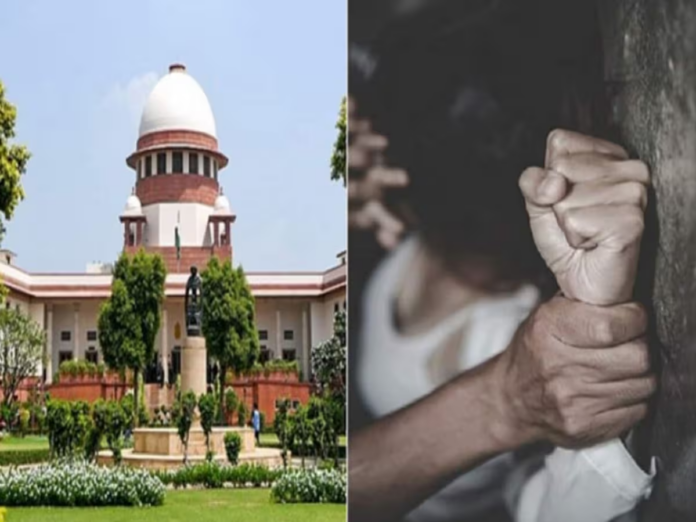In a contentious and emotionally charged argument before the Supreme Court of India, the Union government on October 3, 2024, defended the marital rape exception under Section 375 of the Indian Penal Code (IPC). The government argued that applying the stringent legal provisions used for prosecuting rape cases involving strangers within the institution of marriage would be “excessively harsh” and could have far-reaching socio-legal implications on the very fabric of matrimony in India.
This stance, however, has triggered a national debate: is the government prioritizing the sanctity of marriage over the fundamental rights of women? Or, is it a well-meaning attempt to protect the unique dynamics of conjugal relationships? The Supreme Court’s final ruling could reshape the very definition of consent within Indian marriages.

Why is Marital Rape Still Legal in India?
Under the current legal framework, Exception 2 to Section 375 of the IPC exempts a husband from being prosecuted for rape if the victim is his wife. While the definition of rape covers non-consensual sex, this exception allows husbands to escape prosecution for sexual violence committed within marriage, a fact that has drawn widespread criticism from human rights advocates and women’s groups.
Despite the recommendations from the Justice JS Verma Committee following the 2012 Delhi gang rape case, Parliament has chosen to retain the exception, citing the complexities of marital relationships. The Union Ministry of Home Affairs (MHA) has reiterated this stance, submitting an affidavit that argues for a “delicate balance” between the protection of individual rights and the preservation of marriage as a social institution.
But critics are asking: Is this balance tipping too far in favor of protecting men at the expense of women’s rights?
Government’s Argument: “Excessively Harsh” or Necessary?
In its submission, the government acknowledged that while a husband has no “fundamental right” to violate his wife’s consent, invoking the full legal force of rape laws as applied in cases of non-marital rape would be excessively harsh and could destabilize marriages.
The affidavit explained that marital relationships come with distinct societal expectations, including conjugal rights and expectations of sexual access. The government maintained that while consent is crucial, treating non-consensual sex within marriage the same as rape between strangers could disrupt the institution of marriage and lead to serious disturbances.
However, this argument begs the question: Should marital expectations override a woman’s right to bodily autonomy?
Alternative Legal Remedies: Are They Enough?
The government further argued that alternative legal provisions already exist to handle cases of sexual assault within marriage. Sections 354, 354A, 354B, and 498A of the IPC, as well as the Protection of Women from Domestic Violence Act, 2005, provide remedies for women who experience sexual violence within marriage. These provisions, according to the affidavit, ensure serious consequences without applying the “ghastly” label of rape to violations that occur within the marital bond.
Critics, however, have countered that these laws don’t go far enough. 498A, for example, focuses on cruelty and harassment, but does not explicitly address non-consensual sex within marriage. Is it enough to treat rape as merely a form of harassment or cruelty, rather than recognizing it as the grievous crime that it is?
Concerns of Misuse: A Valid Fear or a Red Herring?
One of the government’s primary concerns is the potential misuse of marital rape laws, should the Supreme Court strike down the exception. The affidavit warned that removing the exception could lead to a surge in false allegations, destabilizing marriages and causing unnecessary strain on the judiciary.
Supporters of the marital rape exception argue that laws related to consent within marriage are complex and difficult to enforce. Marital disputes, they claim, often involve emotionally charged conflicts, and labeling every instance of non-consensual sex within marriage as rape could lead to vindictive lawsuits and false claims.
However, opponents argue that the fear of false allegations is a common defense used to justify retaining discriminatory laws. They contend that, much like in other rape cases, due process should be enough to separate false claims from genuine grievances. The mere possibility of misuse, they argue, should not be a reason to deny justice to the thousands of women suffering sexual violence in their own homes.
Marriage, Consent, and Bodily Autonomy: The Core Debate
At the heart of this debate is a fundamental question about the nature of marriage and consent. The government’s argument hinges on the idea that marital relationships are inherently different from non-marital relationships and that sexual expectations within marriage should be treated differently under the law.
However, feminist scholars and human rights advocates have long argued that marriage should not be a license for sexual violence. Consent is as critical in marriage as it is in any other relationship, and ignoring this fact perpetuates patriarchal notions that women owe their bodies to their husbands simply because of a marital bond.
In countries like the United Kingdom, Canada, and South Africa, marital rape has been criminalized for years. These countries have shown that it is possible to protect the institution of marriage while also ensuring justice for victims of sexual violence within marriage.
The Indian Supreme Court now has the opportunity to decide whether to align itself with this progressive global trend, or to continue protecting the outdated notion that marriage somehow nullifies a woman’s right to say “no.”
Is The Government’s Stance Outdated?
As the Supreme Court continues to hear arguments about the marital rape exception, it becomes increasingly clear that this case is not just about the legalities—it’s about the future of women’s rights in India. The government’s defense of the exception, framed as an attempt to preserve the sanctity of marriage, has come under fire for placing marital expectations above basic human rights.
Ultimately, the decision will come down to whether the court believes that women’s consent within marriage is worth less than in other relationships. Should the institution of marriage continue to shield men from prosecution for sexual violence, or is it time for India to modernize its laws and protect women, regardless of their marital status?
The Supreme Court’s ruling will not only impact the lives of millions of married women in India but will also signal the country’s stance on women’s rights in the 21st century.

